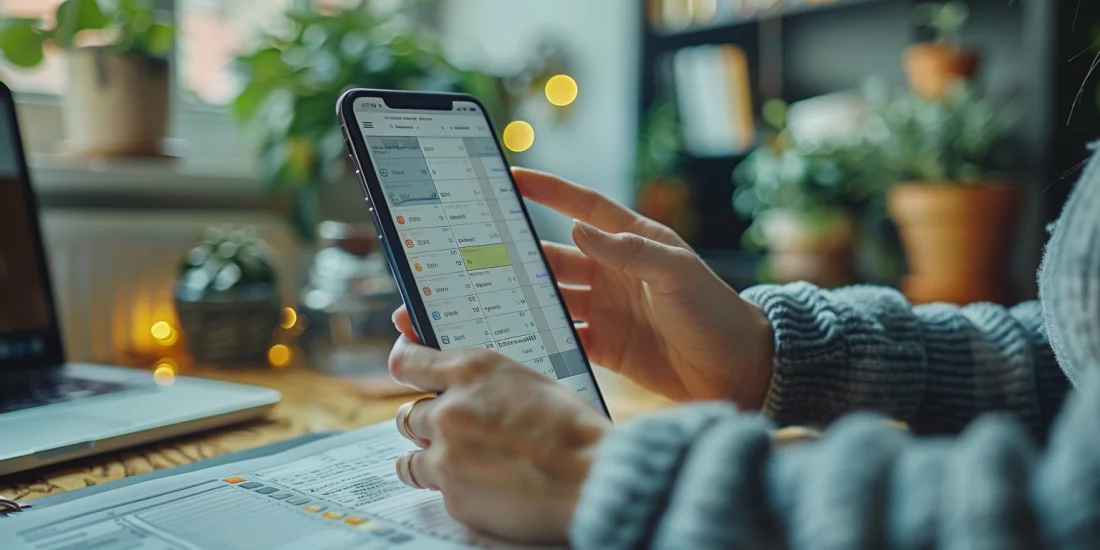Choosing the best schedule app can significantly improve productivity and time management. A top-tier schedule app should offer a user-friendly interface, comprehensive integration capabilities, cross-device compatibility, and extensive customization options. These features ensure users can easily manage their time, set reminders, and integrate their schedules with other essential tools. The right schedule app can transform how you organize your day, making it easier to stay on top of tasks and appointments.
A reliable schedule app provides more than just basic calendar functions. It integrates seamlessly with other tools, such as email and task management systems, ensuring all your schedules and tasks are in one place. Additionally, it should work smoothly across various devices, so you can access your schedule whether you’re on a phone, tablet, or computer. Customization options are also crucial, allowing you to tailor the app to your specific needs and preferences.
When selecting a schedule app, consider features that enhance usability and functionality. An intuitive interface, real-time synchronization, and robust security measures are essential. These features ensure that you can manage your schedule efficiently and securely, improving overall productivity.
User-Friendly Interface
A user-friendly interface is vital for any schedule app. Firstly, it simplifies navigation, allowing users to quickly add, edit, and view appointments and tasks. An intuitive design saves time and reduces the learning curve, enabling users to become proficient quickly. By presenting information clearly, the app enhances the user experience, encouraging regular use.
Secondly, a responsive design ensures accessibility across various devices. Whether users are on a smartphone, tablet, or desktop, the app should function seamlessly. This flexibility is crucial in today’s fast-paced environment, where individuals often switch between devices throughout the day. A responsive design also improves search engine optimization (SEO), making it easier for potential users to find the app online.
Moreover, the interface should include helpful features like search filters and visual calendars. These tools enable users to locate available times and manage their schedules effectively. By streamlining the scheduling process, the app minimizes the time users spend navigating the interface, enhancing overall satisfaction.
Integration Capabilities
Integration capabilities are essential for maximizing the efficiency of a schedule app. Firstly, syncing with calendar applications and email systems ensures that all appointments and tasks are consolidated in one place. This integration saves time and reduces the risk of scheduling conflicts. Users can manage their entire schedule without switching between multiple apps.
Secondly, integration with task management tools enhances productivity. Users can create tasks directly from their schedules, set deadlines, and track progress. This feature ensures that all time-related activities are organized and easily accessible. Additionally, integration with communication platforms allows for better coordination. Users can send appointment details and reminders directly through integrated messaging apps, improving communication and reducing missed appointments.
Moreover, integrating with project management tools streamlines workflows. Users can assign tasks, set milestones, and track project timelines directly from their schedule app. This integration ensures that all aspects of a project are managed efficiently, from scheduling to task completion.
Cross-Device Compatibility
Cross-device compatibility is a critical feature of a reliable schedule app. Firstly, it ensures that users can access their schedules from any device, whether a smartphone, tablet, or computer. This flexibility is vital in today’s dynamic environment, where individuals frequently switch between different devices. By offering a consistent experience across all devices, the app ensures users can manage their schedules efficiently, regardless of their location.
Secondly, real-time synchronization is crucial. Changes made on one device should automatically update on all others, ensuring that users have the most current information at all times. This synchronization prevents scheduling conflicts and ensures accuracy across platforms. It eliminates the need for manual updates, saving time and reducing the risk of errors.
Moreover, cross-device compatibility supports remote work and collaboration. Team members can access and update shared schedules from their respective devices, improving coordination and communication. This feature is particularly beneficial for businesses with remote or traveling employees, ensuring everyone stays on the same page regarding appointments and deadlines.
Customization Options
Customization options are essential for tailoring a schedule app to individual preferences and needs. Firstly, the ability to customize layouts allows users to choose how their schedules are displayed, whether in daily, weekly, or monthly views. This flexibility enables users to organize their schedules in the most convenient way. Additionally, color-coding options help differentiate between various types of appointments and tasks, making it easier to prioritize and manage time effectively.
Secondly, the ability to create custom categories improves organization. Users can group similar tasks or appointments under specific categories, such as work, personal, or health. This categorization simplifies the process of finding and managing related activities. It also allows for better tracking of time spent on different activities, providing insights into productivity and time allocation.
Moreover, customization enhances the overall user experience. Users can tailor the app’s appearance and functionality to match their preferences, making it more enjoyable to use. This personalization increases engagement and encourages regular use of the app. By offering a range of customization options, schedule apps can cater to diverse user needs and enhance overall efficiency.
Security and Privacy
Ensuring security and privacy is paramount for any schedule app. Firstly, implementing secure socket layer (SSL) encryption protects sensitive information during transmission. This encryption prevents unauthorized access to personal data, ensuring that users’ information remains confidential. A secure app builds trust, encouraging users to manage their schedules without concerns about data breaches.
Secondly, compliance with data protection regulations is essential. Adhering to regulations such as the General Data Protection Regulation (GDPR) ensures that the app handles personal data responsibly. This compliance involves obtaining explicit consent from users before collecting their information and providing options to manage their data. Transparent data handling practices foster trust and demonstrate a commitment to privacy.
Moreover, implementing robust access controls ensures that only authorized personnel can access sensitive information. Regular security audits and updates keep the system protected against vulnerabilities. By prioritizing security and privacy, schedule apps can build a reliable and trustworthy platform that users feel confident using.
Key Takeaways
– A user-friendly interface simplifies navigation and enhances accessibility, ensuring a smooth scheduling experience.
– Integration capabilities consolidate schedules and tasks, improving productivity and communication.
– Cross-device compatibility ensures consistent access and real-time synchronization across various devices.
– Customization options allow users to tailor the app to their needs, enhancing organization and user experience.
– Strong security measures and compliance with data protection regulations protect user data and build trust.
– Overall, these features ensure efficient time management and boost productivity in managing schedules.



